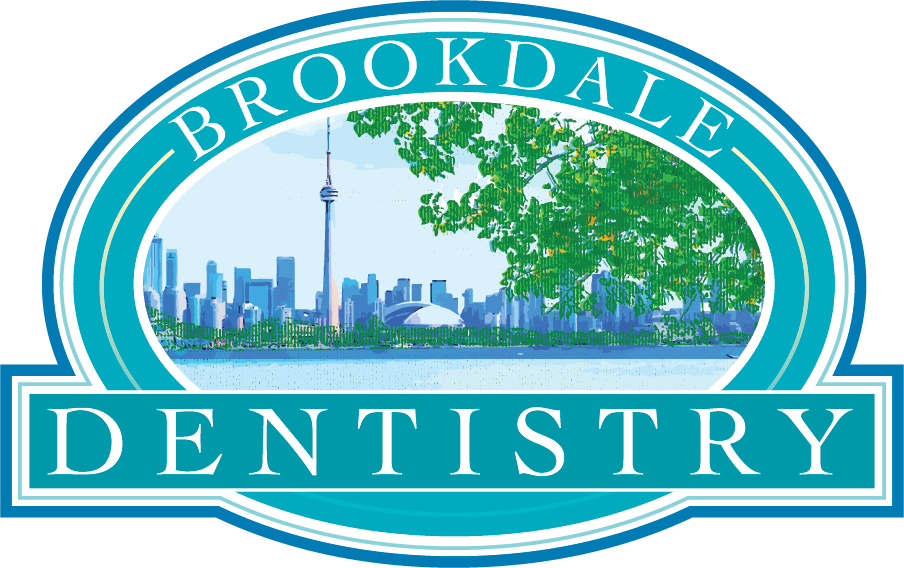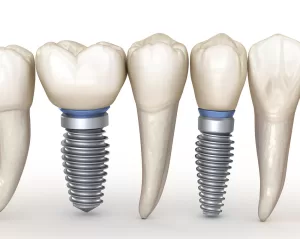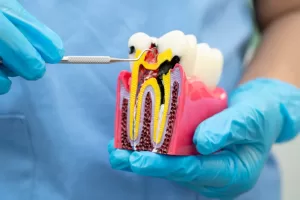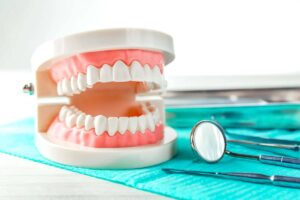We all know how important is it to maintain proper oral hygiene. The core of proper dental Hygiene is regular cleaning. It helps prevent dental issues such as cavities, gum disease, and bad breath. When it comes to tooth cleaning there are lots of different options available. The main choices are at-home teeth cleaning and professional teeth cleaning.
We understand that visiting the dentist for cleaning might seem like a hassle, so you may think about cleaning your teeth at home. But is at-home teeth cleaning a suitable option or do you need professional dental cleaning at a clinic?
Answering this question requires a thorough understanding of both professional and at-home teeth cleaning, the tools and options available for each, their pros and cons, and specific considerations for each method.
In this blog post, we will cover all the necessary information and help you find the best option catered to your specific situation. Get ready to explore the world of teeth cleaning with us.
Teeth Cleaning from The Comfort of Your Home
If staying at home is your top priority or you don’t have access to a professional dental clinic. At-home teeth cleaning is your solution. There are various tools and options available for at-home teeth cleaning. Let’s explore them together.
Toothbrush and Toothpaste
The most common and fundamental tool for at-home teeth cleaning is a toothbrush and toothpaste. Choose a soft-bristled toothbrush and a fluoride-based toothpaste recommended by dental professionals. Brush your teeth at least twice a day using gentle circular motions and make sure to cover all surfaces of your teeth.
Dental Floss
Dental floss is essential for removing plaque and food particles from between your teeth and along the gumline. It prevents gum disease and tooth decay. Use a piece of floss about 18 inches long, wrap it around your fingers, and gently slide it between each tooth in a sawing motion. Be careful not to snap the floss against your gums.
Mouthwash
Mouthwash can be a valuable addition to your oral hygiene routine. It freshens your breath, reaches areas that are difficult to clean with a toothbrush, and reduces plaque buildup. Look for an antimicrobial mouthwash to kill bacteria and follow the instructions on the label for proper use.
Interdental Brushes
Interdental brushes, also called proxy brushes, are small, narrow brushes that clean the area between the teeth, especially in tight spaces and around dental appliances like braces or bridges. They are an effective alternative to dental floss for those who struggle with flossing.
Water Flossers
If you have braces, implants, or other dental appliances water flossers, also known as oral irrigators specifically beneficial for you. They use a stream of water to remove plaque and debris from between your teeth and along the gumline. Remember to follow the manufacturer’s instructions for optimal usage.
Tongue Scrapers
Tongue scrapers are tools that remove bacteria, food particles, and dead cells from the surface of the tongue. Regular use of a tongue scraper improves oral hygiene, reduces bad breath, and enhances the overall cleanliness of your mouth.
Remember, while these at-home cleaning options and tools are effective, they are not a substitute for professional dental cleaning. Now, let’s explore professional dental cleaning and its various aspects.
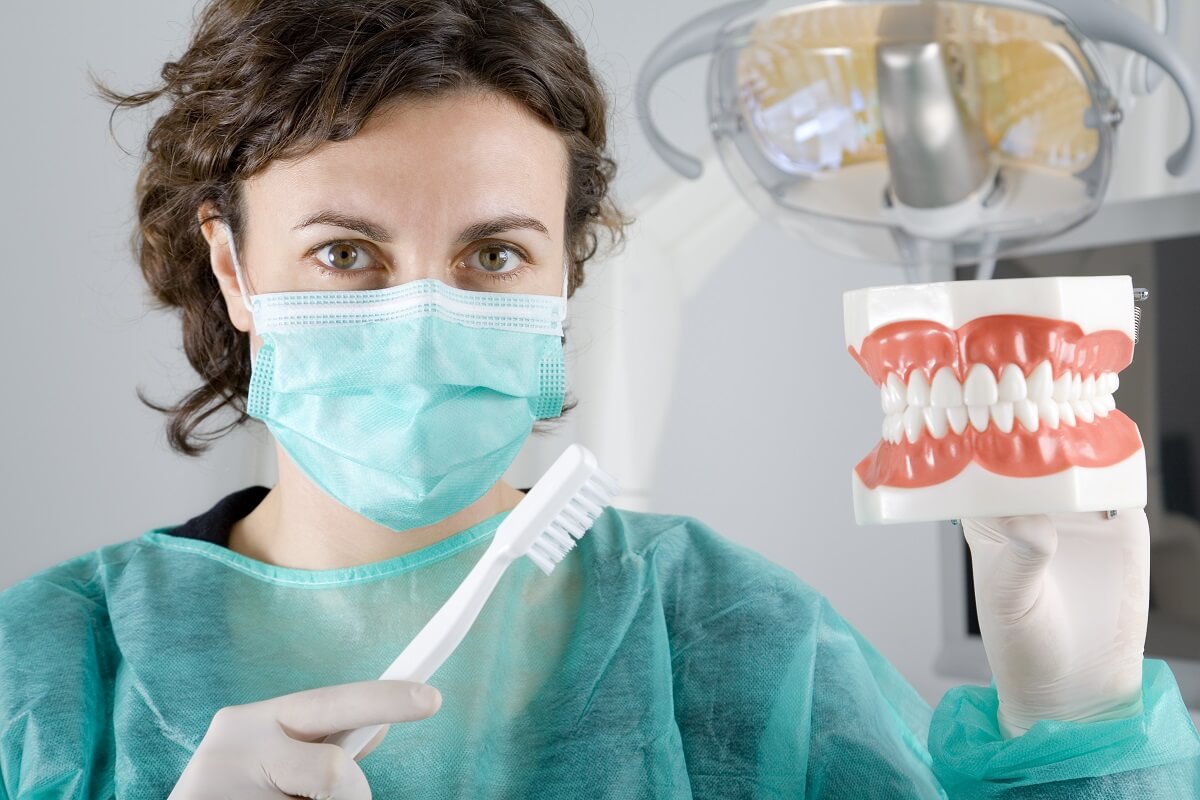
How To Clean Your Teeth like a pro: Professional Dental Cleaning
Although at-home teeth cleaning is a must and is beneficial for preventing oral disease, it can’t tackle all dental cleaning needs. In some cases, you may need to visit a professional dentist for a more comprehensive cleaning procedure known as professional teeth cleaning. Professional teeth cleaning, also known as dental prophylaxis involves a deeper cleaning of your teeth and gums than what can be achieved through at-home methods. It typically includes the following:
Plaque and Tartar Removal
During a professional dental cleaning, the dental professional will use specialized tools to remove plaque and tartar buildup from your teeth. Plaque is a sticky film of bacteria that forms on your teeth, while tartar is hardened plaque that can only be removed by a dental professional. Removing these deposits helps prevent tooth decay and gum disease.
Scaling
Scaling is a common procedure in which the dental professional uses handheld instruments or an ultrasonic scaler to remove plaque and tartar from the tooth surfaces, including the areas below the gumline. This process removes bacteria and increases gum health.
Polishing
After scaling, the dental professional will polish your teeth with a rotating brush or a rubber cup using an abrasive toothpaste. Polishing removes surface stains and leaves your teeth feeling smooth and clean. It also gives your smile a refreshed appearance.
Flossing and Rinsing
After scaling and polishing, the dental professional will floss your teeth to ensure all areas between the teeth are free from debris. They may also recommend rinsing with an antimicrobial mouthwash to reduce bacteria and promote oral health.
Examination and Evaluation
During the cleaning appointment, the dental professional will conduct a thorough examination of your teeth and gums. They will check for signs of dental issues such as cavities, gum disease, or oral abnormalities. This allows early detection and prompt treatment of any potential problems.
It’s important to note that professional dental cleaning is not a one-size-fits-all approach. Depending on your oral health needs, your dentist may recommend additional procedures, such as dental X-rays, fluoride treatment, or periodontal therapy for individuals with gum disease.
Now that you have an understanding of both at-home teeth cleaning and professional dental cleaning, let’s explore which option may be most suitable for you.

At Home or Professional Teeth Cleaning? Which One Meets My Needs?
Deciding between professional teeth cleaning and at-home teeth cleaning depends on several factors. To determine which option is suitable for you, consider the following:
Oral Health Condition:
Evaluate your current oral health condition. If you have relatively healthy teeth and gums, with minimal plaque and tartar buildup, and no signs of gum disease, at-home teeth cleaning may be sufficient to maintain your oral health. However, if you have existing dental issues, such as gum disease or a history of tooth decay, you need professional dental cleaning to address these concerns effectively.
Frequency of Dental Visits:
Regular dental check-ups are essential for preventive care and early detection of dental problems. If you consistently visit your dentist for routine examinations and cleanings, incorporating professional dental cleaning into your oral care routine can provide a comprehensive approach to maintaining oral health.
Effectiveness of At-Home Methods:
Consider how effectively your at-home cleaning methods and tools are working for you. If you have a diligent brushing and flossing routine but still struggle with plaque and tartar buildup, try professional dental cleaning to remove stubborn deposits and improve your oral hygiene.
Specific Dental Conditions or Concerns:
Certain dental conditions or concerns may require professional dental cleaning. For example, if you have braces, dental implants, or dental restorations, professional cleaning maintains your oral health and prevents complications. Moreover, If you are suffering from gum disease, you may benefit from more frequent professional cleanings to manage the condition effectively.
Personal Preferences and Convenience:
Another factor you need to consider is personal preferences and convenience. Some people may find professional dental cleanings more convenient and time-saving, as they can address multiple oral health aspects during a single visit. On the other hand, if you prefer a more hands-on approach and are committed to maintaining a diligent at-home oral hygiene routine, at-home teeth cleaning may be a suitable option.
For making the ultimate decision it’s better to consult with a dental professional. They can assess your oral health, provide personalized recommendations, and help you make an informed decision based on your specific needs and circumstances.
Remember, maintaining good oral hygiene habits at home, such as regular brushing, flossing, and mouthwash use, is crucial regardless of whether you choose professional teeth cleaning or at-home methods.
All in All
Proper oral hygiene is a must for preventing dental issues. Both professional teeth cleaning and at-home teeth cleaning play important roles in oral care. At-home cleaning methods, such as brushing, flossing, and using mouthwash, are effective for daily maintenance. However, professional dental cleaning offers a more thorough and comprehensive approach, especially for people with specific dental conditions or concerns. Consulting with a dental professional is recommended to determine the best option for your oral health needs.
If you need further information to decide the best option, don’t wait to call us at Brookdale Dentistry Clinic. Take a step towards optimal oral health today. Contact us for a free consultation and schedule your visit for professional dental cleaning. Our experienced team is ready to provide you with personalized care and treatment.
At Brookdale Dentistry Clinic, we offer a comprehensive range of dental services, including fillings, extractions, gum disease treatment, sedation dentistry for anxiety-free procedures, family dentistry for patients of all ages, root canal therapy, apicoectomy, cosmetic dentistry procedures such as teeth whitening, dental veneers, dental bonding, and…
Don’t wait, book your appointment now!
